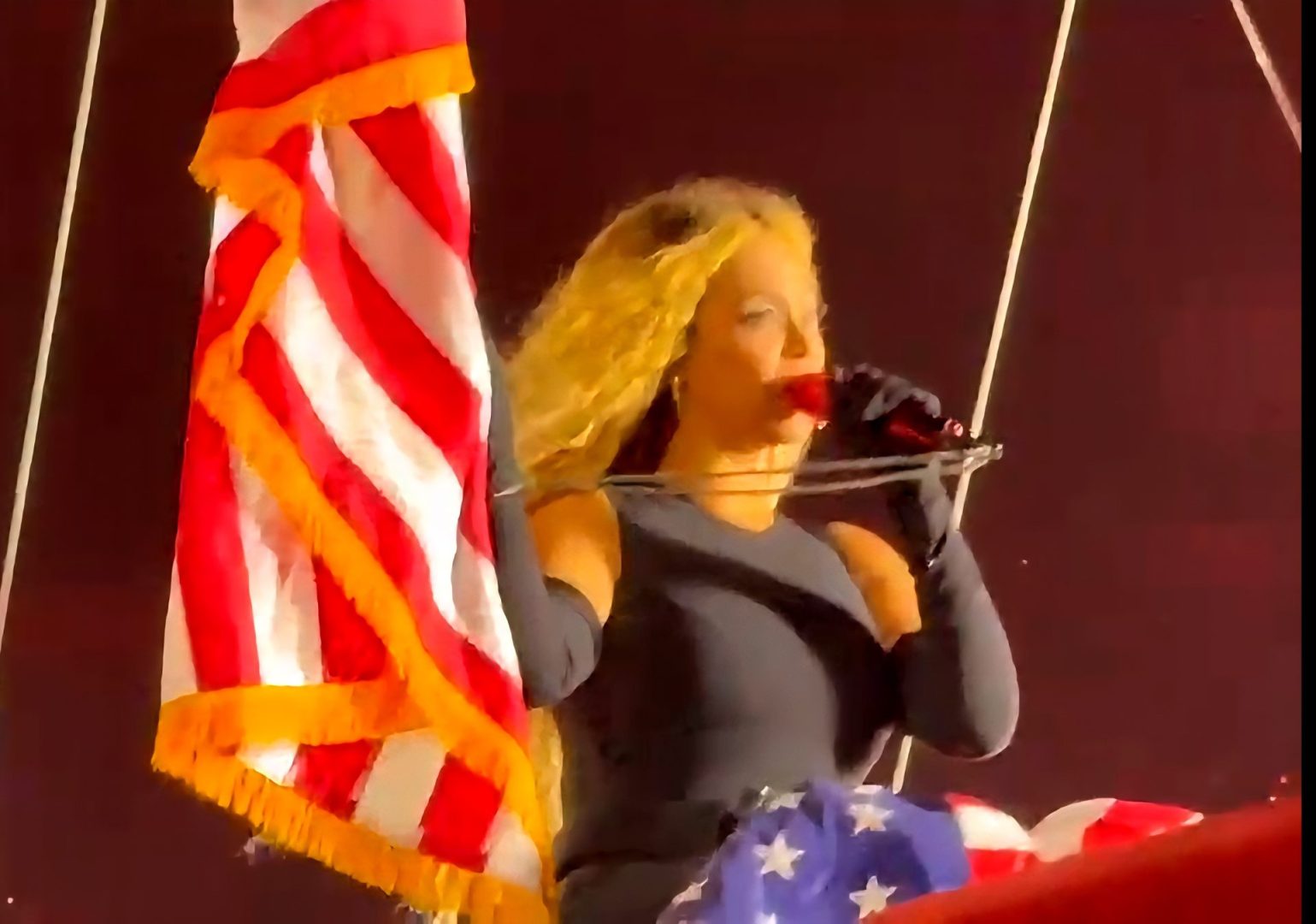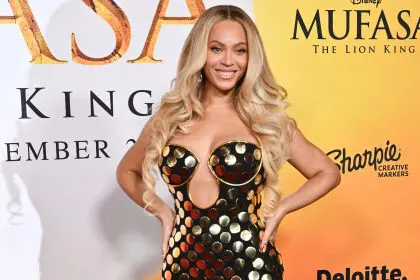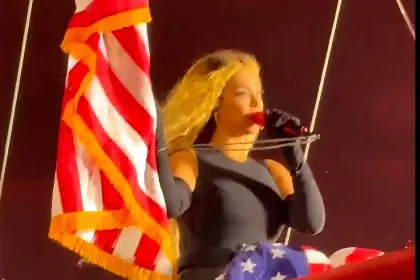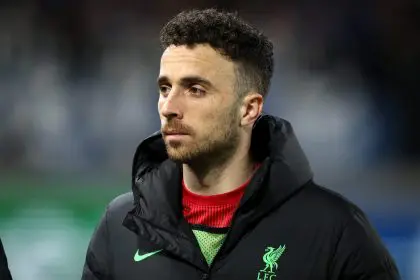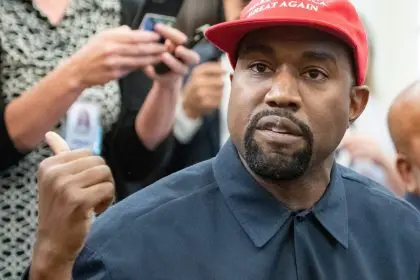Sometimes the most powerful moments in entertainment happen not on stage, but in the quiet decisions artists make about who gets to experience their magic. Beyoncé just reminded everyone why she’s considered royalty in more ways than one by launching an initiative that’s about to change how some families think about what’s possible in their lives.
The superstar is reportedly giving away tickets to her Cowboy Carter tour through local food banks, specifically targeting families who would never be able to afford the steep prices that come with seeing one of the world’s biggest performers live. This isn’t just charitable giving, it’s a revolutionary approach to making entertainment accessible to people who are usually priced out of these experiences entirely.
What makes this move so brilliant is how it addresses the elephant in the room that most celebrities prefer to ignore. Concert tickets have become so expensive that they’re essentially luxury items available only to people with significant disposable income. Beyoncé is acknowledging that reality and doing something concrete to change it for the families who need it most.
When concert tickets become impossible dreams
The sticker shock that hit fans when Cowboy Carter tour tickets went on sale in February was immediate and brutal. Social media erupted with disappointment as people realized that seeing Beyoncé live had become financially impossible for many of her most dedicated supporters.
This pricing crisis isn’t unique to Beyoncé, it’s become the norm across the live music industry. Premium artists charge premium prices, and the result is that concerts have transformed from community experiences into exclusive events for people with substantial financial resources.
For families already struggling with basic expenses like housing, food, and healthcare, spending hundreds of dollars on concert tickets feels irresponsible even if they desperately want to attend. The choice between seeing their favorite artist and paying rent isn’t really a choice at all.
Beyoncé’s food bank partnership directly addresses this impossible situation by removing the financial barrier entirely. Families who access food banks are already demonstrating financial need, so distributing tickets through these channels ensures they reach people who truly couldn’t afford them otherwise.
The food bank connection that makes perfect sense
Partnering with food banks to distribute free tickets shows strategic thinking about reaching families who would benefit most from this opportunity. Food banks already have relationships with low-income families and understand their circumstances in ways that other distribution methods couldn’t match.
This approach also treats recipient families with dignity rather than making them jump through hoops or prove their worthiness for free tickets. The food bank connection creates a natural, respectful way to identify families who could use this opportunity without creating additional barriers or embarrassment.
Food banks serve as trusted community resources that families already rely on for support. Using these existing relationships to distribute concert tickets feels organic rather than patronizing or overly complicated.
The initiative also recognizes that families facing food insecurity are dealing with more than just hunger. They’re often socially isolated and excluded from cultural experiences that others take for granted. A free concert ticket represents access to joy and community that goes far beyond the entertainment value.
Why this changes everything about celebrity giving
Most celebrity charitable efforts focus on writing checks to established organizations or creating foundations that operate at a distance from the actual people being helped. Beyoncé’s ticket initiative takes a much more direct approach that immediately impacts families in her audience.
The beauty of this program is how it addresses a specific need that other forms of charity don’t touch. Families struggling financially can often find assistance with food, housing, and healthcare through various programs. But access to cultural experiences and entertainment is rarely considered a priority for charitable giving.
By focusing on concert access, Beyoncé is acknowledging that quality of life involves more than just meeting basic survival needs. Families deserve opportunities to create positive memories, experience joy, and participate in cultural moments that bring communities together.
The initiative also demonstrates understanding of her audience in ways that feel personal rather than calculated. She knows that many of her fans are working families who love her music but can’t afford her ticket prices. Instead of ignoring that reality, she’s chosen to address it directly.
The ripple effects nobody expected
When families receive free tickets to see Beyoncé, the impact extends far beyond the concert experience itself. Children who attend these shows will remember them for the rest of their lives as moments when something magical and unexpected happened in their families.
Parents who have been telling their kids they can’t afford concert tickets suddenly get to be the heroes who make impossible dreams come true. That shift in family dynamics can be incredibly powerful for parents who are used to disappointing their children because of financial limitations.
The initiative also creates positive associations between seeking help at food banks and receiving unexpected opportunities. Families might feel more comfortable accessing these community resources when they know they’re connected to positive experiences rather than just emergency assistance.
Local communities benefit when families who rarely have opportunities to attend major cultural events suddenly get access to shared experiences that bring people together. The concert becomes a community celebration rather than an exclusive event for wealthy families.
What other artists should learn from this
Beyoncé’s approach to ticket distribution creates a template that other major artists could easily adapt for their own tours. The infrastructure already exists through food banks and community organizations that serve low-income families.
The program also demonstrates that addressing accessibility doesn’t require artists to lower their overall ticket prices or sacrifice revenue. By reserving a portion of tickets for charitable distribution, performers can maintain their business model while still creating opportunities for families who otherwise couldn’t attend.
Other celebrities often struggle to find meaningful ways to give back to their communities that go beyond writing checks. The ticket distribution model provides a direct connection between artists and the fans who need support most.
The initiative shows how celebrity platforms can be used to address systemic inequalities in access to cultural experiences. Instead of just talking about social issues, Beyoncé is using her resources to create immediate positive impact for specific families.
The lasting impact on entertainment accessibility
This initiative could influence how the entire live music industry thinks about accessibility and community engagement. When one of the world’s biggest stars demonstrates that charitable ticket distribution is both possible and impactful, other artists and venues might consider similar programs.
The program also raises important questions about whether access to cultural experiences should be considered a community priority rather than just a luxury for people with disposable income. Beyoncé’s approach treats concert attendance as something that contributes to community wellbeing rather than just individual entertainment.
If successful, this model could expand beyond individual artists to become a standard practice for major tours and venues. Imagine if every major concert included a charitable ticket distribution component that ensured diverse audiences rather than just wealthy ones.
The long-term impact might be measured not just in the number of families who attend concerts, but in how those experiences influence their children’s relationship with music, performance, and cultural participation throughout their lives.
Why this moment matters beyond music
Beyoncé’s ticket initiative represents more than just charitable giving, it’s a statement about values and priorities that extends far beyond entertainment. In a cultural moment when wealth inequality continues growing, her approach demonstrates that successful people can use their platforms to create immediate positive impact.
The program also challenges assumptions about what kinds of charitable work matter most. While addressing hunger and homelessness obviously remains critical, Beyoncé’s initiative recognizes that human dignity and quality of life involve access to joy, culture, and shared community experiences.
For the families who receive these tickets, the experience will probably become a defining positive memory that demonstrates how unexpected opportunities can emerge even during difficult financial times. Those lessons about possibility and community support could influence how these families approach challenges throughout their lives.
The generosity that transforms communities
Beyoncé’s decision to partner with food banks to distribute free concert tickets shows exactly why she’s maintained her position as both a musical and cultural icon. Her approach to this initiative demonstrates understanding of her audience, respect for people facing financial challenges, and strategic thinking about how to create meaningful impact.
The program addresses real barriers that prevent working families from accessing cultural experiences while treating recipients with dignity rather than pity. By working through existing community organizations, she’s created a sustainable model that other artists could easily replicate.
Most importantly, the initiative recognizes that everyone deserves opportunities to experience joy, community, and cultural connection regardless of their financial circumstances. That kind of inclusive approach to entertainment access could reshape how the entire industry thinks about serving diverse audiences rather than just wealthy ones.

